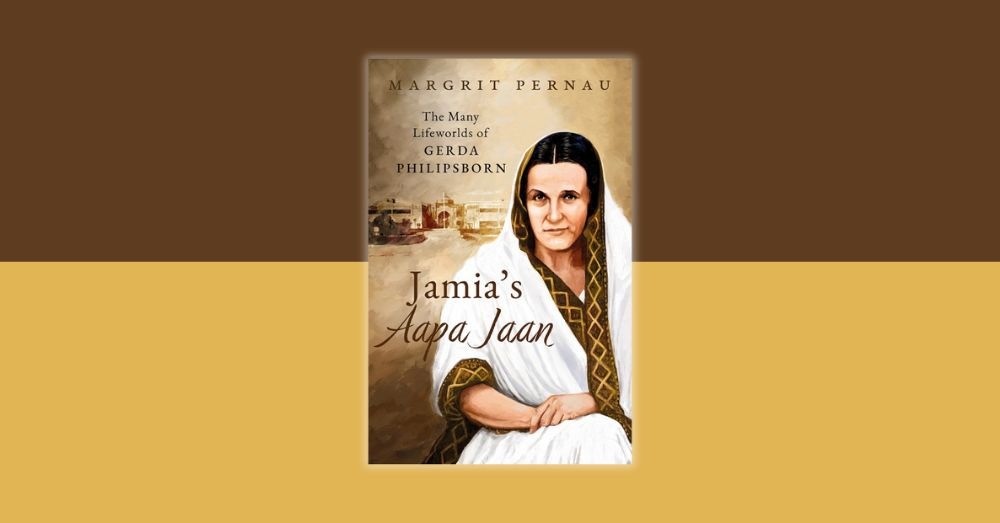
Follow WOWNEWS 24x7 on:
Updated: May 08, 2025 19:56

Margrit Pernau's Jamia's Aapa Jaan: The Many Lifeworlds of Gerda Philipsborn is a radiant, off-center biography that animates the incredible life of Gerda Philipsborn-a German Jewish woman who ended up being Jamia Millia Islamia's much-loved "Aapa Jaan" (beloved elder sister). As much a portrait of Philipsborn as it is an account of Jamia's early years, the book skillfully interweaves personal history, feeling, and institutional narrative.
Key Highlights:
A Life Across Worlds: Opera-trained and steeped in the cosmopolitan culture of Berlin, Philipsborn's friendships with Zakir Husain, Muhammad Mujeeb, and Abid Husain-future builders of Jamia and Indian history-pulled her into the center of India's freedom struggle and educational reform.
From Berlin to Jamia: Defying convention and advice, she departed Germany in 1932, opting to work at Jamia Millia Islamia rather than live in Mandatory Palestine. She soon became a part of the university, teaching in the primary school, looking after children, and being given the loving nickname "Aapa Jaan" for her maternal presence.
Emotional Biography: Pernau structures the book along the lines of emotions, bringing to life the mood of each stage of Philipsborn's life-from the comfort of her advantaged German childhood to the hardship and satisfaction of her Indian years.
Legacy of Care: Despite cultural differences and initial reluctance, Philipsborn's commitment changed Jamia's community. She added health check-ups, extracurricular activities, and writing for children's magazines, and became a maternal figure to innumerable students.
Lasting Influence: Even through her death in 1943, her legacy continues to thrive in Jamia's institutions bear her name and in the cultural memory of the university's "biradari" (community).
A Community Biography: Pernau's narrative approach-marshaling Gerda's history with that of Jamia-suggests that her influence was communal, rather than individual, so that she is a "ghost" present in the fabric of the institution.
Pernau's book is afloat with praise for its sensitive storytelling, sensitive historical insight, and for bringing to the forefront an overlooked revolutionary whose life spanned continents, cultures, and causes.
Source: Asian Review of Books, BBC, The Wire, The Tribune





